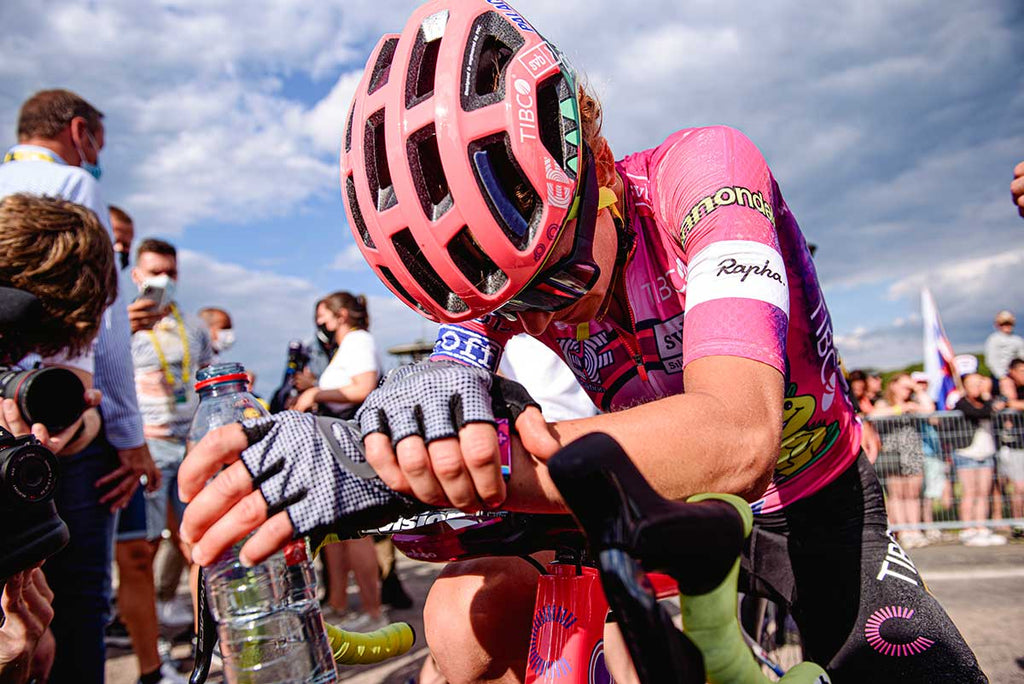August 10, 2022
The Canadian former-professional rider rode every stage ahead of the peloton to get a full appreciation of the race
When EF Education-TIBCO-SVB founder Linda Jackson and I finally find a moment to chat during the chaotic days of the inaugural Tour de France Femmes avec Zwift, it’s 7.30am and she’s already rumbling through the French countryside in a van to the start of stage five. She’s been awake since 5am, fuelling up on pasta and ready to ride the stage ahead of the professional peloton. In an impressive show of enthusiasm for the first women’s Tour de France in 33 years, Jackson – along with a group of pals from California – has been riding ahead of every single stage.
“Riding the stages has given me a deeper perspective on the courses, more than just seeing the women race them on TV,” she explains, describing how stage four had really stuck out for her. “I thought the stage was amazing. I was so annoyed to read a comment from a DS that stage four was ‘too hard for the girls’,” shares Jackson. “Leaving the obvious sexism aside, I totally disagree.” Instead, she thought it showed the capability of the female peloton on gravel sectors and rewarded those with good technical skills. Putting it plainly, she adds: “If riders did their course recon, they were prepared.”
For Jackson, who quit a job in investment banking at the age of 35 to pursue her love of cycling, before going on to found EF Education-TIBCO-SVB, the eight-day Tour de France Femmes avec Zwift marks a game changing moment within the sport.
“This multi-stage TdFF is the single most important thing that has happened to women’s professional cycling in the past three decades,” she declares. “The success of this race over the next several years will determine the future path of women’s cycling for generations to come.”
Media exposure, and its role in driving additional sponsorship plays a significant part, she explains. “If the race is economically viable for ASO, they will continue to invest in future editions. If it isn’t economically viable, the race will likely go away, and our sport could falter,” she warns. She is positive though that the event has seen the levels of exposure to be considered a success.
The added exposure is something her team’s riders have also felt, she says: “They feel like…

